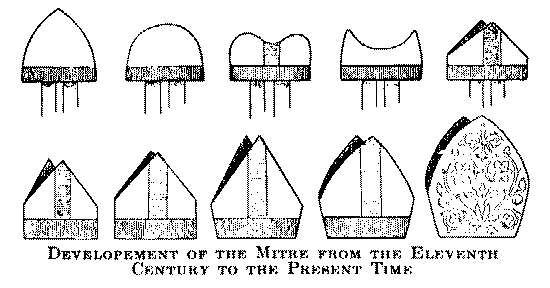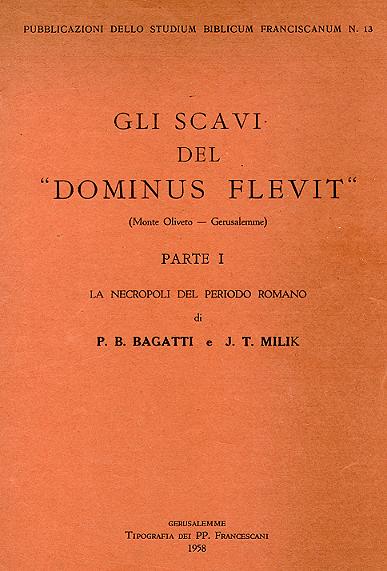Here it is:

What an obscene and ostentatious display of wealth ? Especially compared to these "men of God":
http://kmerian.blogspot.com/search/label/pastors%20for%20profit


I've been around catholics for decades and arouns them on the internet for years. The catholics in person are as ignorant of what they believe as I would expect. The catholics on the internet are trained liars. By this I mean that regardless of how it stares at them from accurate sources, including their own, they lie their way out of it, using the usual catholic controvertist methods. That means if one of them were to say good morning to me, I'd wait to see if it actually is one. I object to your statement of pre-determined, since I look for the unusual all the time. You know, the possibility that a catholic may agree that what he believes and preaches is not true. I don't hold my breath, you can understand why.How is this Christian?







Our competitive benefits package includes:
The information contained here is meant as a summary overview of benefits. The benefits listed above apply to U.S. employees only. Specific benefits will be discussed with employees on the date of hire.
Hey I have the Holy Spirit too, cool!!!! Guess I have as much authority as the apostles and Pope by your reasoning? I think you better restate that argument, or nix it alltogether.
The Holy Spirit, gives different gifts to different people. Not everyone is called to be a successor to the Apostles, to possess teaching authority. But those that are called, are Bishops of the Church.If you need to fill ‘vacancies’ in an ‘office’ of apostleship (aka, mormon alert), then why aren’t there Catholic apostles? And don’t say the cardinals, bishops, and priests are. Why not exactly 12?
Sorry, Joe but the bishops are the modern day successors of the Apostles. I know you told me not to say that, but that is like saying "tell me what 2+2 is, and don't say 4!". Anyway. In Acts we see the first apostle added outside of the twelve (Paul) As the church grew, so did the numbers of apostles.Why isn’t the Pope the most like Jesus out of all of us, Kenneth? Read my previous comment, please. If the Papacy is God ordained and infalliable (do you even see how cultish and power grabbing that is????), when from the seat of Power, then what of the crusades and burning/torturing/persecution of the heretics? Very Christian, very Christ like. All proclaimed ‘legal’ by the perpetrating Popes, and from their seats of power. Where did Jesus command such actions, how is any of that “Christian” and “From God”? I’d say that’s proof of the Papacy being not what it claims to be, among many other things, and without the Papacy, there is no Catholic anything. Think about it, and please go and study non-catholic written/influenced history, to learn what your “mother church” has done over the past 1700 years.
Because the Pope is still a man, not God. Yes, the Pope is Christs Vicar here on earth. But that does not automatically make him anything more than he is. He is NOT infallible in all things. Merely on matters of faith and morals and even then only when speaking ex cathedra. The Holy Spirit is capable of using men to speak and write infallibly. The Bible is proof of that.About human nature, all being sinners, and infants…
“Even from birth the wicked go astray; from the womb they are wayward and speak lies.” Ps.58:3
“Surely I was sinful at birth, sinful from the time my mother conceived me.” Ps. 51:5
All have surely sinned. All are evil by nature, by the Curse on Adam. Surely God will not hold infants accountable, but that doesn’t negate their sin nature, and wicked hearts. Have you raised children? Full of lies, deceit, and disrespect, from birth even. And, as your Pope finally decided to contradict the other popes (red flag?), they don’t need a man made tradition of infant baptism to avoid the make believe place of ‘limbo’.
Yes, all have original sin, they are not, however, "evil by nature". God created man in his own image. So if man is evil by nature, God would need to be as well. And your verses confirm original sin, something I am not denying, but they do not speak to when or whether Mary was saved from original sin. In them, David, confirms his sinfulness. They do not speak of Mary. Also, I don't believe that children are "full of lies, deceit and disrespect from birth". Perhaps I am lucky, but that does not describe my daughter at all.I’m not sure how you consistently avoid the quoted verses from Hebrews on the Sacrifice of Christ being ONCE and for all, and ONLY ONCE. You keep changing that to fit your pre conceived bias ingrained in to your mind. Please stop. And don’t accuse us of believing in an ongoing sacrifice from ‘a different point of view’, who are you, Obi Wan Kenobi? (I just watched starwars tonight, lol). It was done once, once and for all, only once. How is that not clear to you? It’s not clear because you pre-assume the Catholic position is correct, and reinterpret based on that. That’s what happens with an ‘infalliable Pope’ and Magistrate.
The Catholic Church has always affirmed that the bloody sacrifice at Calvary spoke of in Hebrews was "once for all" (CCC 1364). In the Eucharist, however, it is made present. I attempted to explain the Catholic position to you in a way you would understand. That when a Protestant "accepts Jesus as their personal Lord and Saviour" His sacrifice is made present in their lives. Apparently I am wrong, as evidenced by those who have corrected me. So I apologize.Joe
In debating, we search for truth. I do not seek to convert, but when I see Catholic beliefs being presented improperly, I respond. If Catholics were misrepresenting your beliefs, wouldn't you want to correct them. You may reject Catholicism, but you should accurately know what you are rejecting. Hope this helps

In these words you must note, in the first place, that here stand God's commandment and institution, lest we doubt that Baptism is divine, not devised nor invented by men. For as truly as I can say, No man has spun the Ten Commandments, the Creed, and the Lord's Prayer out of his head, but they are revealed and given by God Himself, so also I can boast that Baptism is no human trifle, but instituted by God Himself, moreover, that it is most solemnly and strictly commanded that we must be baptized or we cannot be saved, lest any one regard it as a trifling matter, like putting on a new red coat. For it is of the greatest importance that we esteem Baptism excellent, glorious, and exalted, for which we contend and fight chiefly, because the world is now so full of sects clamoring that Baptism is an external thing, and that external things are of no benefit. But let it be ever so much an external thing here stand God's Word and command which institute, establish, and confirm Baptism. But what God institutes and commands cannot be a vain, but must be a most precious thing, though in appearance it were of less value than a straw. If hitherto people could consider it a great thing when the Pope with his letters and bulls dispensed indulgences and confirmed altars and churches, solely because of the letters and seals, we ought to esteem Baptism much more highly and more precious, because God has commanded it, and, besides, it is performed in His name. For these are the words, Go ye baptize; however, not in your name, but in the name of God.
For to be baptized in the name of God is to be baptized not by men, but by God Himself. Therefore although it is performed by human hands, it is nevertheless truly God's own work. From this fact every one may himself readily infer that it is a far higher work than any work performed by a man or a saint. For what work greater than the work of God can we do?
But here the devil is busy to delude us with false appearances, and lead us away from the work of God to our own works. For there is a much more splendid appearance when a Carthusian does many great and difficult works and we all think much more of that which we do and merit ourselves. But the Scriptures teach thus: Even though we collect in one mass the works of all the monks, however splendidly they may shine, they would not be as noble and good as if God should pick up a straw. Why? Because the person is nobler and better. Here, then, we must not estimate the person according to the works, but the works according to the person, from whom they must derive their nobility. But insane reason will not regard this, and because Baptism does not shine like the works which we do, it is to be esteemed as nothing.
From this now learn a proper understanding of the subject, and how to answer the question what Baptism is, namely thus, that it is not mere ordinary water, but water comprehended in God's Word and command, and sanctified thereby, so that it is nothing else than a divine water; not that the water in itself is nobler than other water, but that God's Word and command are added.
Therefore it is pure wickedness and blasphemy of the devil that now our new spirits, to mock at Baptism, omit from it God's Word and institution, and look upon it in no other way than as water which is taken from the well, and then blather and say: How is a handful of water to help the soul? Aye, my friend, who does not know that water is water if tearing things asunder is what we are after? But how dare you thus interfere with God's order, and tear away the most precious treasure with which God has connected and enclosed it, and which He will not have separated? For the kernel in the water is God's Word or command and the name of God which is a treasure greater and nobler than heaven and earth." (Martin Luther, Larger Catechism, Ch 4)
kmerian you may want to research the meaning of exegesis. The post you have made on your site is not an exegesis of the Scripture nor is it a reasonable refutation of my own exegesis.
I am sorry you feel that way, I thought I did alright, but I shall endeavor to do better.It is true that the Catholic church believes tradition to be on par with scripture, however part of the reason for writing this article was to see if tradition in any way contradicts scripture. If it were to do so then either scripture or tradition would have to be false, and hence the Catholic church no longer has any foundation.
True, but you would have to be infallibly certain of your interpretation for it to completely undermine the foundation of Catholicism. And, unless you were infallibly certain, there is the possibility that you are incorrect and the RCC is correct.(Without of course answering the question of what do we judge the Bible by, since something cannot judge itself).
Of course this would be to make the assumption that the Bible is one book written at one point in time by one author. Of course our readers are all well aware that the Bible consists of multiple writings, written over thousands of years by numerous authors. It is not a case of the Bible judging itself, but rather Paul judging Moses, or Peter judging David etc.
But the Bible as a single volume was compilied at one point in time. Also, your example of Paul judging Moses and Peter judging David. Is fine, but who judged Peter and Paul? Who identified their writings?
In response to my exegesis of Matthew 26, kmerian wrote:
Actually, I was writing in response to your inclusion of the wedding feast at Cana. And how it teaches against the real presence because when Jesus turned water into wine, it looked at tasted like wine, therefore transubstantiation is not possible. My argument to you was that was an irrelevant point because it places a limitation on God. The fact that in Matthew 26 it still looked and tasted like bread and wine means nothing but that it was taken in faith. And faith is the belief in that unseen.
Actually if you read the article I didn’t say this at all. One of the key verses in this section of the article is Matthew 26:29 “But I say to you, I will not drink of this fruit of the vine from now until that day when I drink it new with you in My Father’s kingdom.” Not surprisingly this verse follows verses 27 and 28. So to read it without the breaks as a more literal interpretation of the original Greek Matthew 26:27-29 reads:
And when He had taken a cup and given thanks, He gave it to them, saying, “Drink from it, all of you for this is My blood of the covenant, which is poured out for many for forgiveness of sins but I say to you, I will not drink of this fruit of the vine from now until that day when I drink it new with you in My Father’s kingdom.”
When a person is saved they are born again spiritually, not physically, but they are no longer referred to as children of the devil, or sinners, but children of God or saints. When Jesus supposedly spiritually changes the state of the fruit of the vine he does not then cease to refer to it as what it once was but rather refers to it in the present tense as still being the fruit of the vine.
True, but when the apostles became new men in Christ upon their reciept of the Holy Spirit, they were still referred to by their "old" names (with the exception of Simon Peter). The fact that Jesus called the cup "the fruit of the vine" really does not outweigh what he stated just moments before when he stated that it was his blood.
I don’t disagree that Jesus was speaking prophetically as to what was to happen at Calvary, however this does not change the fact that he referred to the drink as the fruit of the vine. To say that he was talking about a different cup when the text never suggests so would be “forcing meaning into a passage to make it fit the author’s pre-conceived notions”
Touche! My explanation, however, is plausible given the situation so we must look for larger meaning.
I also suggested that forcing a Jew to drink blood would be breaking God’s law according to Genesis 9:3-6, to which kmerian responds:
Again, this is irrelevant to the discussion on transubstantiation, because for this to be relevant, Jesus would have to be a mere man, and he was not, he was fully divine and fully man. They were not drinking or eating his human flesh.
Apparently it is not ok to shed or drink a man’s blood, but if he is fully man and fully God then God has no issue with it.
Jesus told his disciples in John 6, that this would be difficult to accept, and many left him over it. That difficulty still exists today. Jesus was no mere man, and, it is difficult to explain how his blood can be present in the wine. But in doing this Jesus gave them a way to drink blood without breaking the law.
A text without context becomes a pretext, and yet when I state such, as is the case with John 6:53, kmerian writes:
So, because this verse does not fit the Authors pre-conceived notion, it must be misinterpreted.
Apparently to put Scripture in context is to “misinterpret” Scripture.
No, of course it is not. But we can define "context" however we wish. My contention is that when we place this chapter of scripture in the context of Jesus words and actions at the last supper and Pauls words to the Corinthians as well as the historical contexts of the beliefs of the church. The larger context becomes clear.
When exegeting John 6, I make the statement:
Hence it can be seen that eating His flesh and drinking His blood are equated with beholding and believing in Him.
To which kmerian responds:
Here, we are trying to force meaning, yes, eating his flesh and drinking his blood are equated with beholding and believing in him in the Eucharist, (the bread which he would give us to eat).
Notice how the only difference in this statement is the addition of “in the Eucharist” yet at no point do these words, unlike the others, appear in the Scriptures.
That is true, they do not. But the problem I have with your interpretation of John 6 is that when Jesus says "This is my body". You are responding "No, it isn't". That is not something I am not prepared to do.
kmerian also states:
Again, the assumption is made that Jesus must be speaking figuratively, because if he is foretelling the Eucharist, the authors position falls apart. I believe Jesus is speaking literally here.
Likewise I can respond by saying that the assumption is made that Jesus must be speaking literally, because if he is speaking figuratively, kmerian’s position falls apart. Fortunately I can argue my position from the Scriptures.
You can argue it from your personal interpretation of scripture. I agree with most of your exegesis of John 6, we just separate at a certain point.
kmerian continues:
No, it means just what they said, we were not there, we don’t know Jesus’ tone or emphasis. They were there, and it was clear to them what Jesus meant. He was not speaking figuratively.
Again this is a case of “because I said so”. Remembering that this is the same person who has previously told us that Jesus, mid sentence, changed reference from one drink to another, despite no proof from the text, kmerian now states that the text has to be completely literal. The context in John 6 however is quite clearly a spiritual teaching, and even kmerian agrees with this throughout his post. That said, are a literal reading and common sense reading the same thing?
I am not arguing it has to be completly literal, Catholics believe that the Eucharist is both symbolic and literal. We have very deep understanding of that. I am arguing that there is both a literal and a spiritual context to what he is saying.
Responding to the exegesis of 1 Corinthians 10, kmerian writes:
Here, the author just glances over Pauls writings in 1 Corinthians 10, Paul states that in the bread and wine we are actually participating in the body and blood of Christ, he does not claim it is symbolic or merely a rememberance, he states it is a participation in the ACTUAL body and blood of Christ. Of course this is not Pauls ONLY reference to the Lords Supper. But it is clear why the author does not use those verses from 1 Corinthians 11 that also deal with it. Paul retells the story from the Gospels but adds this “Whoever, therefore, eats the bread or drinks the cup of the Lord in an unworthy manner will be guilty of profaning the body and blood of the Lord. ” (1 Corinthians 11:27)
This is a harsh punishment for those who have merely failed to discern a symbolic act of nothing but regular bread and wine. Paul equates these substances with the actual body and blood of the Lord. How can that be symbolic?
Notice here that NONE of the exegesis of 1 Corinthians 10 is actually dealt with, rather our attention is diverted to what the writer believes to be a strong argument for the Eucharist.
The reason I did not deal with it, is because I feel that 1 Corinthians 11, if interpreted correctly reveals the true meaning of 1 Corinthians 10.
So as not to foolishly deal with this response in the same way, let us look at 1 Corinthians 11:27 (as always in context):
23 For I received from the Lord that which I also delivered to you, that the Lord Jesus in the night in which He was betrayed took bread;
24 and when He had given thanks, He broke it and said, “This is My body, which is for you; do this in remembrance of Me.”
25 In the same way He took the cup also after supper, saying, “This cup is the new covenant in My blood; do this, as often as you drink it, in remembrance of Me.”
26 For as often as you eat this bread and drink the cup, you proclaim the Lord’s death until He comes.
27 Therefore whoever eats the bread or drinks the cup of the Lord in an unworthy manner, shall be guilty of the body and the blood of the Lord.
28 But a man must examine himself, and in so doing he is to eat of the bread and drink of the cup.
29 For he who eats and drinks, eats and drinks judgment to himself if he does not judge the body rightly. - 1 Corinthians 11:23-29
Just a basic reading of this passage reveals some important points. The first is that we are commanded “to do this in remembrance of” Him, not, that we might have eternal life. You are also told that “as often as you eat this bread and drink the cup, you proclaim the Lord’s death until He comes” not, you are working out your salvation.
Where did I ever say we were "working out our salvation"? And the Catholic celebration of the Eucharist is a proclamation of his death until he comes. You seem to have this notion that it is an either-or situation instead of a "both" situation. The Eucharist is both symbolic and literal. Both a proclamation of his death and an actual participation in that death. It is Christ, offering himself for us.
In fact in Romans 10 we read:
9 that if you confess with your mouth Jesus as Lord, and believe in your heart that God raised Him from the dead, you will be saved;
10 for with the heart a person believes, resulting in righteousness, and with the mouth he confesses, resulting in salvation. - Romans 10:9-10
According to this passage of Scripture, having confessed that Jesus is Lord, you are saved. In 1 Corinthians 10:26 then we see that partaking in the bread and wine is a proclamation of faith in Christ made by one who is already saved.
This is proof-texting. There are many places where the Bible states we are to be saved and how. That does not mean that we can pick which way we want to be saved. The Bible actually speaks of three tenses of salvation: I am already saved (Rom. 8:24, Eph. 2:5–8), but I’m also being saved (1 Cor. 1:8, 2 Cor. 2:15, Phil. 2:12), and I have the hope that I will be saved (Rom. 5:9–10, 1 Cor. 3:12–15)
Not surprising then that the verses continue on as they do:
27 Therefore whoever eats the bread or drinks the cup of the Lord in an unworthy manner, shall be guilty of the body and the blood of the Lord.
28 But a man must examine himself, and in so doing he is to eat of the bread and drink of the cup.
29 For he who eats and drinks, eats and drinks judgment to himself if he does not judge the body rightly.
So, if Paul is speaking strictly to the already saved here. How can they eat and drink judgment on themselves if they have already been judged? And, once again, you don't answer my concern as to why Paul would put such a dire warning on a purely symbolic act?
I appreciate the time and effort that it takes to write a response as you have done kmerian, but unfortunately I still feel the need to ask for an actual Biblical refutation of my article or an alternate exegesis of the passages given. I pray the time you spend studying will help you in understanding our Lord, and that He might use these discussions to lead you into righteousness.
And I, appreciate your time. Your exegesis of the passages is not wrong, you have a very good grasp of the symbolic nature of the Eucharist. But, it is not ONLY symbolic nor is it a either/or situation. The Eucharist is both symbolic and literal.


The answer of course is that they did not. UHL researchers properly translated the inscription on the ossuary as "Simon bar Zilla". Peterson relied on Bellarmino Bagatti 's translation. But according to the UHL when it came to Bagetti "not a single letter was read correctly".
So, read the article, it is very clear and concise. Once again, the anti-catholics are proved wrong. Which once again leads me to ask:
If they cannot be trusted to tell the truth about Catholicism, why should I trust them to tell the truth about Jesus?
